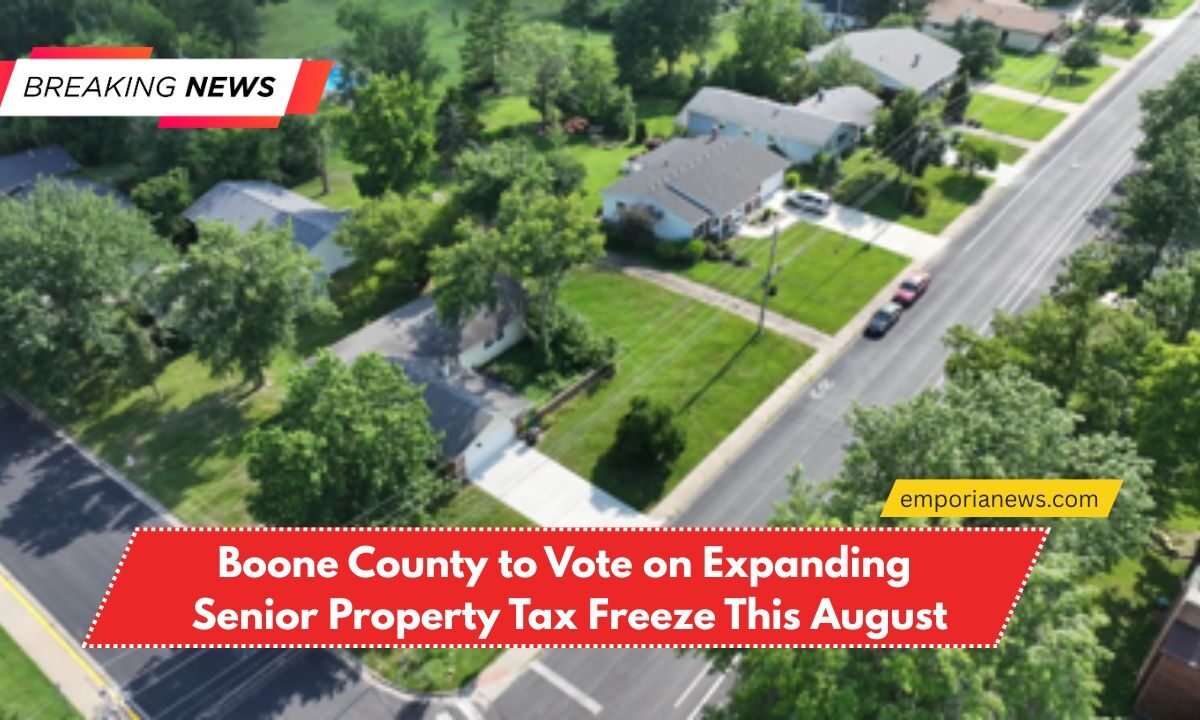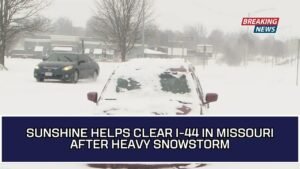In August, Boone County voters will cast their decision on whether to expand the current senior real estate tax freeze to include public bond debt—a move that could significantly impact how local government funds infrastructure, schools, and fire protection projects.
The proposed ballot measure reads:
“Shall the County of Boone, Missouri exempt senior citizens from increases in the property tax liability to all the taxing authorities due on such senior citizens’ primary residence?”
Although Boone County already passed a senior property tax freeze in April 2024 for residents aged 62 and over, this new proposal aims to broaden its coverage.
Background: How We Got Here
The Origin of the Tax Freeze Law
The effort to protect Missouri seniors from rising property taxes began in 2023, when the Missouri General Assembly passed legislation allowing counties to implement their own senior real estate tax freezes. However, the law left certain provisions unclear.
To address the ambiguity, state lawmakers passed clarifications in 2024, including the official eligibility age of 62 or older.
Boone County’s Initial Implementation
After voters approved the initial tax freeze, the Boone County Commission set its rules in May 2024. Two significant exemptions were included in the policy:
- The blind pension fund
- Voter-approved bond indebtedness
These exceptions align with what most other Missouri counties have implemented.
Understanding Public Bond Debt
Public bond debt funds essential services and infrastructure, including:
- Fire protection equipment
- School buildings
- Road and sewer projects
These bonds are repaid through property taxes, which means that excluding seniors from increases tied to these debts could shift the tax burden onto younger property owners.
August Ballot Measure: What Changes?
The August measure seeks to freeze public bond debt-related taxes for eligible seniors at current levels, meaning:
Seniors would not pay more in bond-related property taxes than they do today.
This initiative was led by former Republican state Rep. Cheri Toalson Reisch, who gathered signatures through an initiative petition. Reisch previously requested the commission include bond debt in the 2024 freeze. When it wasn’t included, she acted independently.
However, the special election will cost the county over $100,000 to conduct—a point of contention between Reisch and county officials.
Legal Concerns: Is It Constitutional?
County commissioners, including Democratic Presiding Commissioner Kip Kendrick, have voiced concerns about whether the tax freeze on bond debt is constitutional.
Legal Interpretation
Dave Roland, a constitutional attorney at the Freedom Center of Missouri, acknowledged potential legal conflicts but emphasized they are narrow.
- Article VI, Section 26(d) of the Missouri Constitution permits local governments to charge higher taxes for road and sewer improvements that benefit specific properties.
- If seniors live on such improved streets, a bond debt freeze could conflict with this provision.
However, Roland clarified that:
The Constitution does not directly address tax freezes for school or fire district bond debts.
Thus, excluding seniors from those tax increases is likely constitutional, according to his analysis.
What Happens If It Passes?
Commissioner Kendrick expects broad voter support, noting:
“No senior real estate tax freeze measure has failed in the state so far.”
Should the measure pass in August, the commission plans to amend the existing program immediately to include the frozen bond levies.
“We will quickly then amend the program to include the debt levies and continue moving forward,” Kendrick said.
This August, Boone County voters face a critical decision that could shape how senior citizens are taxed and how public projects are funded.
While legal uncertainties remain, especially around infrastructure-related taxes, the overall measure is expected to pass, offering financial relief to seniors and potentially reshaping local tax policy.
The outcome could serve as a model—or a legal test—for other Missouri counties considering similar initiatives.




